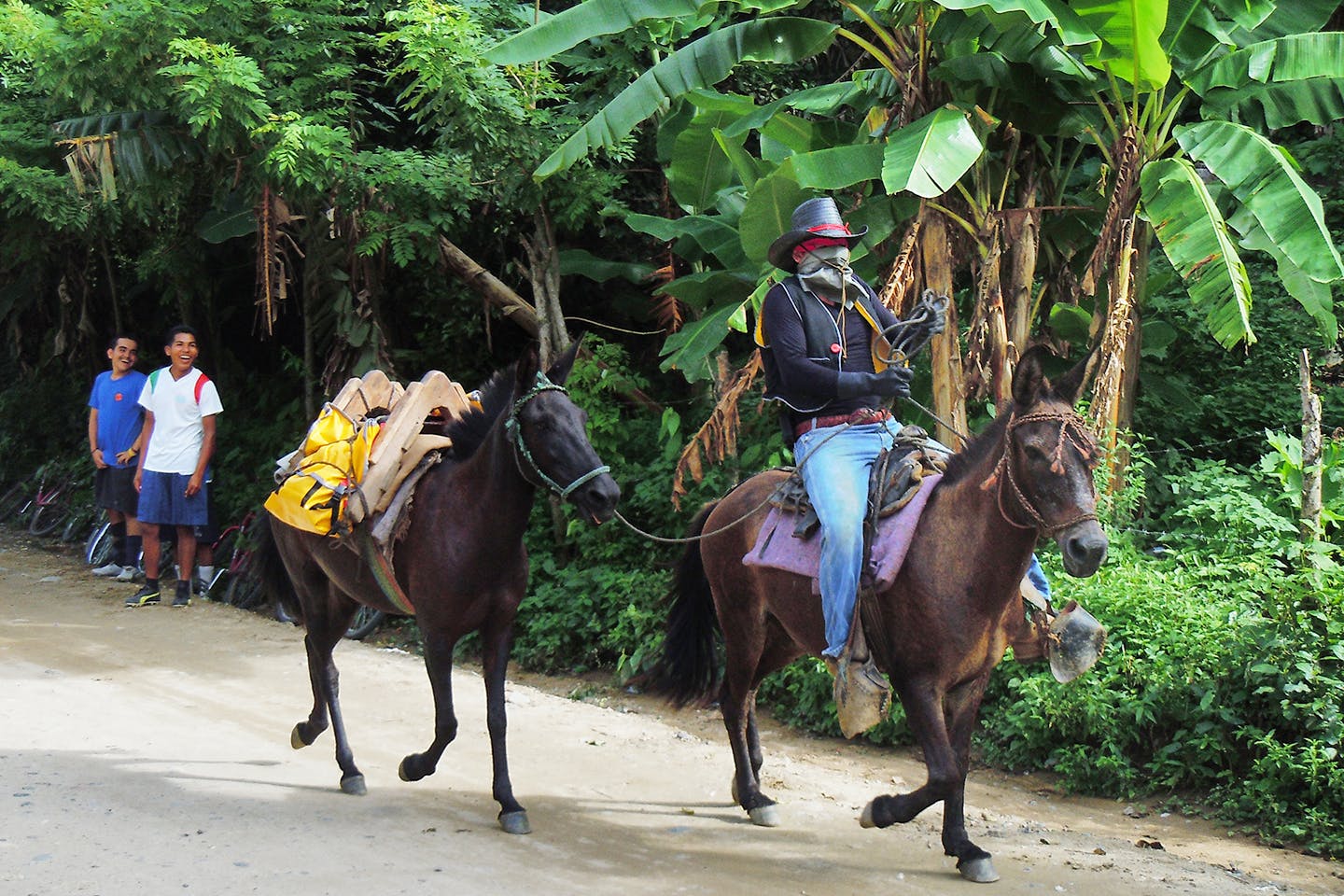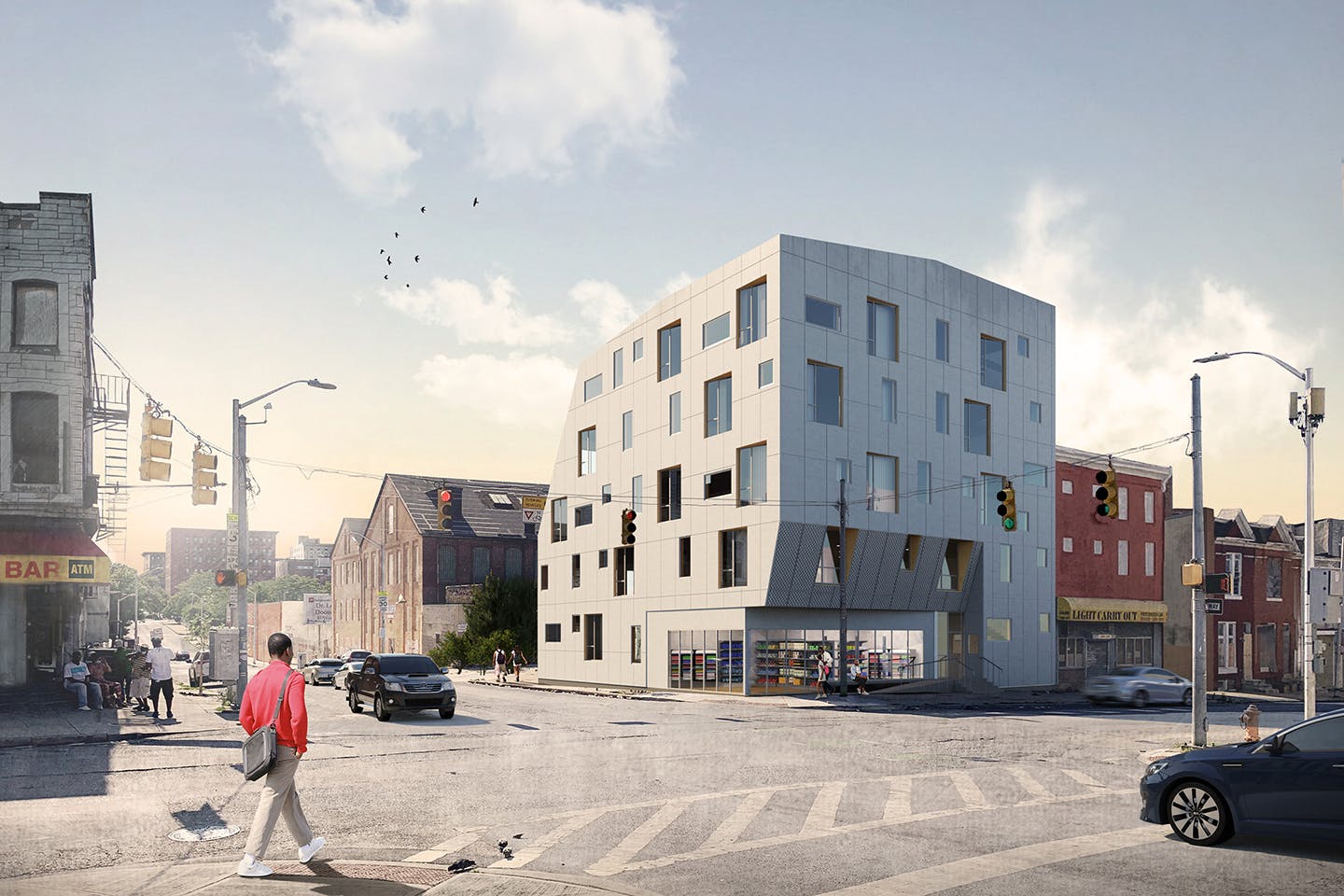Marisa Morán Jahn, assistant professor of design strategies, works across scales and sectors. But whether she is writing a book, designing a space, or collaborating with an organization, one element unifies her projects: “I always start with people,”
says Jahn, whose career focuses on underserved individuals, including immigrants, women, and low-wage and other precarious workers.
Among her current projects is Bibliobandido: Story Eater, a Sundance-supported documentary film about an art and literacy movement that Jahn launched in 2010. In that year, she traveled to a rural Honduran community whose residents have a high rate of
illiteracy and rely on subsistence agriculture. She worked with local children and adults to create the fictitious character Bibliobandido, a masked bandit who eats stories—and whom kids believed was real. Since that time, the ongoing project has
spurred young people to write tales to satisfy Bibliobandido’s ravenous appetite as he roams the jungles. Local youth continue to create stories, and the legend has reached more than 20,000 young people in Honduras and North America. Bibliobandido
sparks young imaginations and inspires joy in reading and writing while strengthening social bonds. As Jahn explains, “Storytelling not only empowers but also transforms both the teller and listener.”
 A still from Bibliabandido: Story Eater, a film that documents Jahn’s imaginative literacy-fostering social intervention.
A still from Bibliabandido: Story Eater, a film that documents Jahn’s imaginative literacy-fostering social intervention.
In chronicling Bibliobandido’s impact, the film explores the effects of climate change on vulnerable communities, cultural preservation, infrastructure, and education as well as the resilience of marginalized peoples. Jahn is writing an interactive book
about Bibliobandido to bring the experience to a wider audience.
Jahn is developing another changemaking project, Carehaus, focused on a different underserved community: seniors. As the project’s initiator and co-founder, she challenges us to reimagine housing for aging in place. “What if we had a senior center that
was beautiful and sexy instead of cold, institutional, and hidden from public view?” she asks. With Carehaus—the first intergenerational care-focused co-housing venture in the United States—Jahn offers a solution of uncommon empathy and creativity.
Designed with architect Rafi Segal, the pilot in Baltimore consists of 20 units designed to house older and disabled adults along with caregivers and caregivers’ families. The facility will employ experts in nutrition, wellness, and fitness to holistically
serve residents’ needs. Drawing on studies documenting the benefits of art for older adults, Carehaus will partner with local organizations to offer integrative arts programming. When it is completed in the next year or so, Carehaus will demonstrate
how design can foster creativity and well-being while strengthening community ties.
 Jahn is collaborating with an architect on Carehaus, an intergenerational building opening in Baltimore in 2024.
Jahn is collaborating with an architect on Carehaus, an intergenerational building opening in Baltimore in 2024.Jahn’s work on Carehaus informs her role as a collaborating artist on Open Collectives, an immersive installation initiated by Segal at the 2021 Venice Architecture Biennale, which explores the relationship between emerging collectives and design. The
project invites viewers to imagine new forms of co-living and resource sharing, a topic Jahn and Segal are examining in their forthcoming book, Design & Solidarity.
In addition to teaching at Parsons, Jahn is the founder and creative director of Studio REV, a senior fellow at MIT, an artist-in-residence at the Brooklyn Public Library, and a member of the inaugural cohort of the Sundance Institute’s Art of Practice
Fellowship.
Jahn’s facility with exploring new ideas, crossing disciplines, and building networks makes her ideally suited to lead Parsons’ BFA Integrated Design program (IDP) this fall. She explains that the program’s approach resonates strongly with students today:
“IDP is not about mastering a single domain. It cultivates agility across media and promotes resiliency and collaboration. The exciting thing about Parsons and NYC is that you don’t have to play a singular role; you have the opportunity to be many
things.”
marisajahn.com